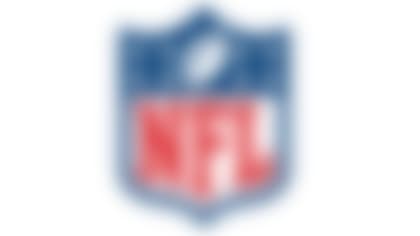There was a light dusting of snow on the field when the Denver Broncos resumed practice last week, perfect preparation conditions for a Super Bowl that will be unlike anything we've seen in a long time -- where mere visible-puff-of-breath cold will be considered good news, where stark stylistic philosophies will have their ultimate showdown.
Battista: Super Manning Bros.

Peyton and Eli Manning are so familiar with the Super
Bowl walk-up that they have their own routine. Judy Battista explains. **READ**
Whether you're into studying game tape or Doppler radar, this matchup offers a referendum: on the way the game is played today and on whether the NFL is likely to contest more of its championships in teeth-chattering frost.
When the NFL awarded the Super Bowl to the New York region, it was viewed as a reward. For the Giants and Jets, who built a new stadium. For the distinguished league leadership of the Giants' Mara family. And for the NFL itself. By putting its game on the world's biggest stage, the league has guaranteed more attention -- particularly important as it tries to lure a bigger international audience -- more name-in-lights spectacle, more ratings and maybe more snow than ever before. If it is a success, the owners know, more cold-weather title games are likely to come.
What the owners could not have known when that vote was taken nearly four years ago, though, was that the matchup itself would be the biggest gift of all: an unambiguous measure of the power of the pass and of the ability of a style of defense -- and defenders of a certain build -- to stop it.
Here's a quick guide to the enticing game ahead:
This is truly unprecedented -- the best versus the best
Battista: Strength vs. strength

Denver scores points. Seattle prevents points from being scored. Yes, quite the clash of styles, Judy Battista writes. **READ**
Never before has a team that finished first in both points and yards (the Broncos) met a team that allowed the fewest points and yards (the Seahawks) in the Super Bowl. Historically, though, such a sharp delineation in strengths does not favor the most explosive offense.
The only thing close to this unequivocal a matchup came at the end of the 2002 season. Tampa Bay allowed the league's fewest points and yards; Oakland gained the most yards, but finished second in points. The result was a 48-21 demolition by the Buccaneers in Super Bowl XXXVII.
The Broncos scored 606 points in 2013, more than any other team has racked up in a single season in NFL history. Of the next eight teams on the all-time scoring list, not one went on to win the Super Bowl, including the second-place 2007 Patriots, the third-place 2011 Packers and the fourth-place 2012 Patriots. And in the five previous meetings of the top scoring offense and the top scoring defense, only once did the top offense win, when the dynastic San Francisco 49ers of Joe Montana beat the Denver Broncos 55-10 in a game that John Elway might prefer to forget -- while hoping that his current Broncos can emulate it. Montana completed 22 of 29 passes and had five touchdowns in that game. But that is truly an anomaly.
Peyton Manning, meet the Legion of Boom
What does the quarterback having the best season in history do to thwart the best secondary in football? Peyton Manning threw 55 touchdown passes this season. No other offense scored that many touchdowns total -- via the pass *and* run -- all season. And the Broncos are the first team ever to have four players catch at least 10 touchdowns each. Denver forces opposing defenses to decide who to key on; Manning then follows up with his innate ability to dissect each look and find the right receiver.
But in 2013, Seattle had the NFL's best scoring, total and passing defense, and also forced the most turnovers. The secondary -- the "Legion of Boom" -- is especially potent, thanks to the unusual size of its players (Richard Sherman and Kam Chancellor are 6-foot-3) and the physicality with which they play.
In the AFC title match, the Broncos used crossing patterns -- and those controversial pick plays -- to thwart the Patriots' preference to play physically against receivers. Denver will probably try that against the Seahawks, too, to keep them from forcing wideouts off their routes and disrupting the timing of the passing game. And the Broncos likely will want to use their no-huddle game to keep Seattle from substituting along the defensive front and keeping pass rushers fresh. The Seahawks will look to move Manning off his spot, preferably without blitzing, and force him to hold the ball.
"I think he does do a good job at getting rid of the ball fast," Chancellor said. "They run a lot of timing routes, so it is kind of hard to get the pressure on him. But our defensive line does a great job and they're dogs up front, savages, and I think they will get to him."
Manning almost surely knows what he won't do: challenge Sherman, who led the NFL with eight interceptions and, according to Pro Football Focus, had the best opposing passer rating (47.3) of any defensive back this season. Sherman has been targeted just twice this postseason and has not allowed a reception. His long reach makes it almost impossible to complete a fade pass on him (just ask Colin Kaepernick and Michael Crabtree). The bad news for Manning: the second-lowest opposing passer rating belongs to Byron Maxwell, who plays opposite Sherman. Pro Football Focus had his mark at 47.8 this season.
The officiating could also play a big role here. If the crew calls pass interference closely, it should help Manning and the Broncos. Seattle is known to grab receivers continuously, skirting the boundaries of allowable contact. Not surprisingly, the Seahawks were called for 13 pass interference penalties this season, tied with the Eagles for the most in the NFL. If the officials let the contact go, it could be a long, bruising day for even the Broncos' biggest receivers.
Can Denver's underrated run defense halt Beast Mode?
The Seahawks rely on an old-school, punishing run offense -- they averaged 31.8 rushes per game in the regular season -- powered by Marshawn Lynch, who piled up 1,257 yards and 12 touchdowns on the ground. In six career postseason games, Lynch has four touchdown runs of at least 25 yards -- the highest such total in NFL history -- which is a testament to his ability to run after contact.
"You have to gang tackle a guy like that," Broncos defensive lineman Terrance Knighton said. "You try not to have so much pride as a defensive player and want to go out there and make the plays yourself. Especially with me being a D-lineman. Obviously I think I can go out there and handle it all by myself, but we have to gang tackle him. I haven't seen on film any guys really taking him down by themselves or knocking him back. We'll have to do a good job containing him and not allow him to break big runs."
Stopping the running game will be key for the Broncos because it will allow their offense to get back on the field. They were able to make the Patriots' LeGarrette Blount a nonfactor in the AFC Championship Game, evidence of a steadily improving run defense. Denver has allowed fewer than 100 rushing yards in five of its past six games after yielding 100-plus in the previous six games. In the Broncos' past three outings, no opponent has eclipsed 65 yards. Denver was 4-1 against teams with a top-10 rushing attack this season. Knighton, a mammoth, 335-pound space eater, is a critical cog in stopping runs up the middle, while Paris Lenon's late-season move to middle linebacker has strengthened the defense against rushes over the center even more.
Another reason the Seahawks want to establish the run: They don't want the game forced into the hands of Russell Wilson, who has not been sharp in the past month. The second-year QB has just 25 completions and one touchdown pass in two postseason games this January. He has averaged 55.5 fewer passing yards per game since Week 14, and his passer rating has dropped 26.4 points in that time span.
Weather could end up being a nonfactor
The current forecast calls for temperatures around freezing with a 30 percent chance of a snow shower and -- most importantly -- winds around eight miles per hour. That isn't much wind, certainly not strong enough to disrupt a passing attack. Manning is 3-5 in his career in games played with winds of at least 20 miles per hour. This year, he played in just one, in New England -- a game the Broncos lost when they could not drive into the wind for a touchdown in overtime.
Relatively good conditions would mean no handicap for either team, allowing the two squads' conflicting styles to determine the champion -- and perhaps the future direction of NFL team building.
Follow Judy Battista on Twitter @judybattista.




